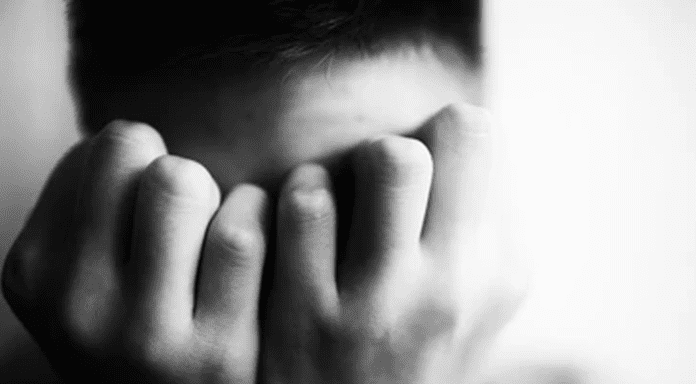Understanding the Rise in Childhood Mental Health Challenges.
1 min read 2024-04-22, 09:29 PM IST
|
In Short Increasing Prevalence: Cases of childhood mental health issues, such as anxiety, have doubled in Mumbai over the past five years. Case Studies: Anjali, Priya, and Neha exemplify the diverse challenges children face, from gender identity issues to grief and cyberbullying. Underlying Factors: Genetic predisposition, societal pressures, and family dynamics contribute to the development of anxiety disorders in children. Treatment Approaches: Interventions range from counseling and cognitive-behavioral therapy to medication, depending on the severity of symptoms. Proactive Measures: Prompt recognition of behavioral changes, encouragement of physical activity, and fostering supportive environments are crucial for addressing childhood mental health challenges effectively. |
Case Study of Children facing Mental Health Issues.
Anjali, aged 13, was known for her academic prowess, consistently achieving good grades. However, her journey through schooling was marred by expulsions from two institutions. She adamantly refused to attend her new school and exhibited frequent temper tantrums, resulting in her absence from school for over a year and a half. Reports from her previous schools indicated behavioral issues with both staff and peers. Eventually, her parents sought psychiatric help, leading to the discovery that Anjali was grappling with gender identity issues. She harbored shame about her female body, feeling uncomfortable in the company of girls.
Similarly, Priya, aged 12, faced the devastating loss of both parents to Covid-19, leaving her under the care of her aunt and uncle. Struggling with grief, she exhibited signs of anger management issues, lost appetite, and withdrew from academic pursuits. Concerned, her guardians sought counseling, where Priya revealed her battles with suicidal ideation. (also read: Happy World Health Day).
Neha, aged 13, vehemently resisted attending school, prompting her parents to seek professional assistance. It was revealed that Neha was a victim of cyberbullying, contributing to her distress and reluctance to engage in school activities.
These cases reflect a growing trend observed by psychiatrists in Mumbai, where instances of anxiety among students have doubled over the past five years. While Anjali, Priya, and Neha’s stories highlight proactive parental intervention, experts caution that childhood mental health issues are often overlooked until they escalate.(also read: Gurugram Restaurant Deadly Misstep with Dry Ice Mouth Freshener).
According to a 2019 study by the National Institute of Mental Health and Neuro Sciences in Bengaluru, nearly one in five adolescents in India experiences some form of mental morbidity. The study predominantly sampled male teenagers from urban, nuclear family backgrounds, revealing tendencies toward risk behaviors such as substance abuse, casual sex, and reckless driving, often leading to conflicts with family members and legal authorities.
Childhood anxiety, if left unaddressed, can have enduring consequences. Dr. Sanjay Kumavat, a consultant psychiatrist and sexologist at Fortis Hospital, Mulund, Mumbai, underscores the complexity of adolescent anxiety, citing presentations ranging from simple fears to post-traumatic stress disorder (PTSD). Dr. Sanjeev Ahuja, a pediatric consultant at LH Hiranandani Hospital, Mumbai, dispels the myth that mental health challenges are exclusive to adults, emphasizing children’s heightened susceptibility to anxiety and depression.
New Global Update- your speediest source for breaking news! READ NOW →
Manifestations of anxiety in children can vary widely, from physical symptoms like abdominal pain and headaches to academic underperformance. Despite being academically adept, individuals like Anjali may exhibit behavioral challenges stemming from underlying anxiety.
Treatment approaches encompass both pharmacological and non-pharmacological interventions. Dr. Kumavat attends to a spectrum of cases weekly, emphasizing the importance of tailored treatment plans. While mild anxiety may respond to counseling and lifestyle modifications, moderate to severe cases may necessitate medication. Dr. Fabian Almeida, a consultant psychiatrist at Fortis Hospital Kalyan, underscores the significance of medication for cases where anxiety significantly impairs daily functioning.
However, Dr. Vrushali Bichkar, a consultant pediatrician and neonatologist at Motherhood Hospital, Pune, advocates for holistic approaches, incorporating counseling and cognitive-behavioral therapy (CBT) alongside medication. She emphasizes the role of parents in fostering supportive environments and encouraging children to pursue hobbies and interests.
The Covid-19 pandemic has exacerbated existing mental health challenges among children. Dr. Foram Matalia, a psychologist at Bhatia Hospital, Mumbai, highlights the surge in anxiety, depression, and feelings of isolation precipitated by lockdowns and social restrictions. Dr. Ahuja identifies social media and societal pressures as additional stressors, contributing to the rising prevalence of anxiety and depression among youth.
Dr. Almeida underscores the genetic predisposition to anxiety disorders, with approximately 40% of cases having genetic links. Family dynamics also play a crucial role, as demonstrated by the case of a seven-year-old boy whose stammering improved significantly when his over-anxious and demanding mother was excluded from therapy sessions.
Amidst escalating concerns, proactive measures are imperative. Professionals emphasize the importance of recognizing and addressing behavioral changes in children promptly. Encouraging physical activity and fostering supportive environments are essential strategies in safeguarding children’s mental well-being.
As the prevalence of childhood mental health issues continues to rise, concerted efforts from families, educators, and healthcare professionals are crucial in mitigating the impact and ensuring optimal support for affected individuals.


Keep it up 😃
Excellent write-up